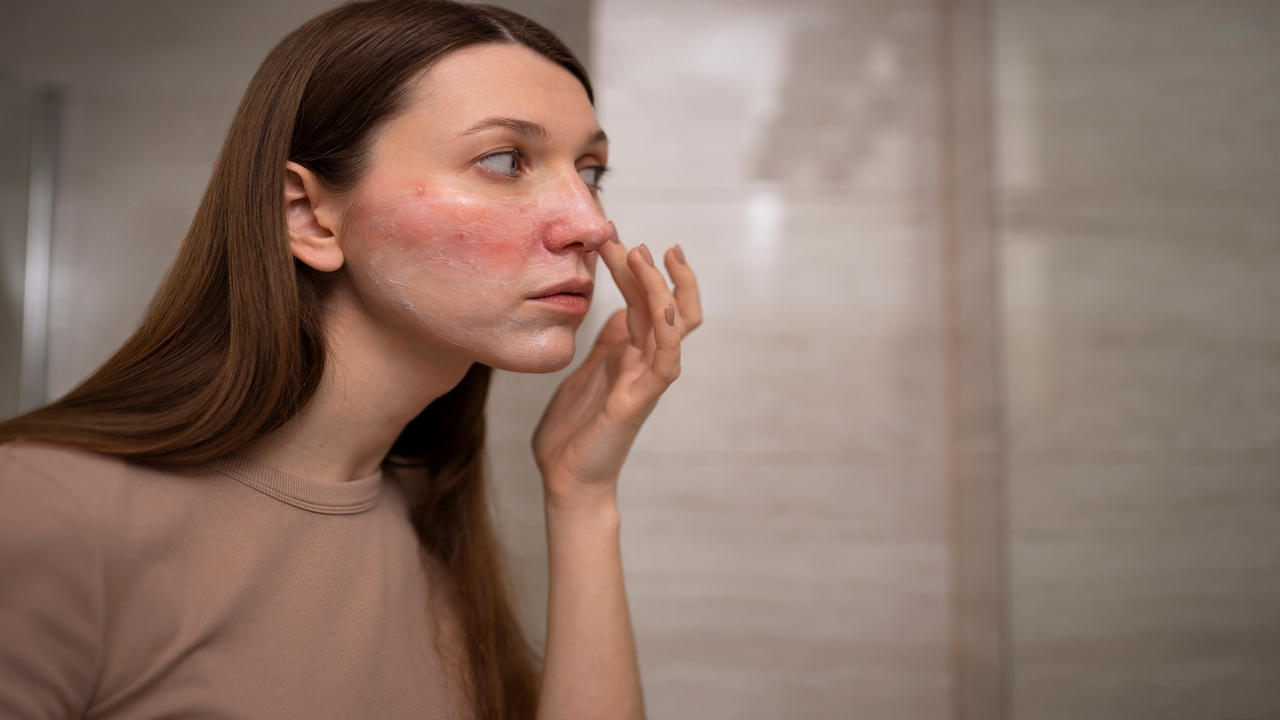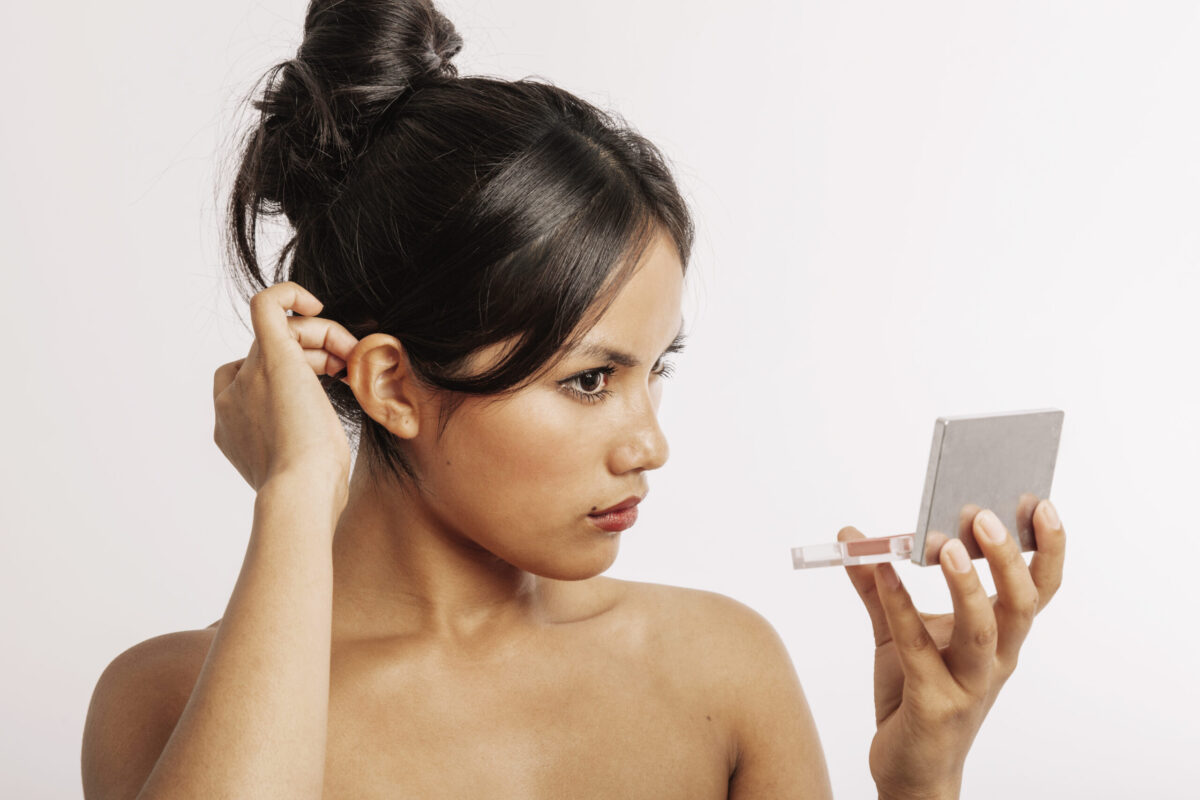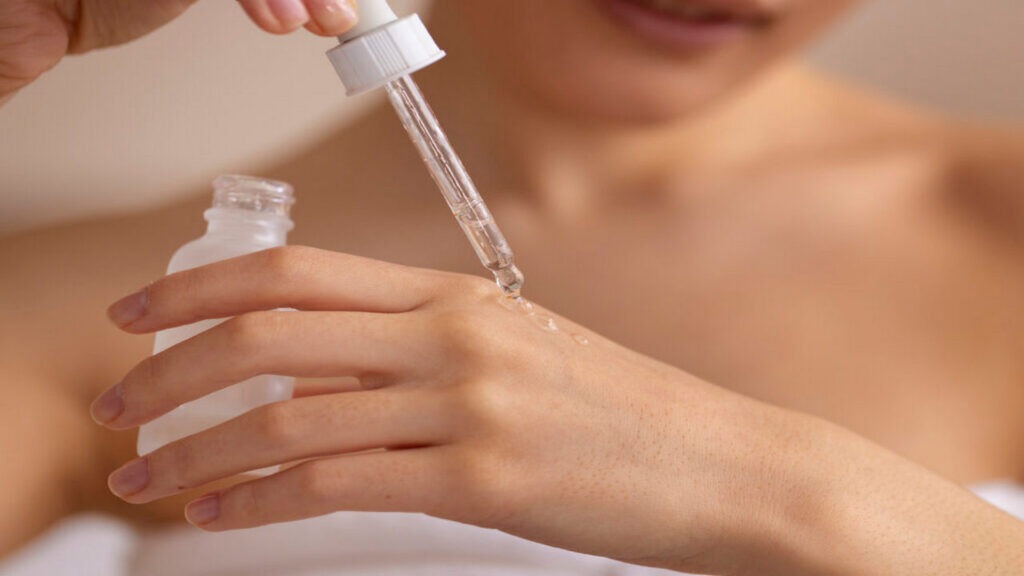Introduction to Rosacea
When your skin habitually gets red or simply loses colors, or when you see some tiny redness due to the formation of minute bumps in the skin, you are likely to be touching rosacea. It is a long-term skin condition that impacts on millions of people across the world; however, many individuals mix it with acne or sensitive skin. Accountability of rosacea means beginning with knowledge on how to manage it.

What is Rosacea?
Rosacea is a chronic skin condition and does not cause major problems with the skin other than the face. It manifests itself in the appearance of reddeness, visible veins, and even acne-type breakouts. Actually, unlike acne, rosacea is not triggered when the pores or bacteria become clogged, but rather,appendages get inflamed and become overly sensitive.
Types of Rosacea
All rosacea do not appear identical. It has four main subtypes:
- Erythematotelangiectatic Rosacea (ETR): The visible blood vessels and their café-en film redness.
- Papulopustular Rosacea: Shallow bumps and pus filled pimples (which are usually confused with acne).
- Phymatous Rosacea: Scared, fleshy skin most commonly on the nose (rhinophyma).
- Ocular Rosacea: It has an effect on the eyes that results in redness, dryness and irritation.
Early Signs and Symptoms of Rosacea
Frequent, or blushing is a starting feature of rosacea. With time, it gets to be more uniform and discernible. Symptoms include:
- Facial redness
- Visible veins
- Acne-like bumps
- Burning/stinging pain.
- Eye irritation
Causes and Triggers of Rosacea
Nobody can perfectly say what causes rosacea but the experts reckon it noticeably is a combination of genes, excessive immune reaction and the surrounding factors. Triggers include:
- Hot or spicy foods
- Alcohol (especially red wine)
- Stress and anxiety
- Extreme temperatures
- Sun exposure
- Certain skincare products
Who is More Likely to Develop Rosacea?
Most often, rosacea occurs in people, and this includes:
- Fair-skinned individuals
- Women (men may have more severe symptoms, but also can have them).
- People aged 30-50
- People who have family history of rosacea.
Impact of Rosacea on Daily Life
Rosacea may have impacts on self-esteem and self-confidence in addition to the redness and the bumps. Most victims are embarrassed, shun parties and they cannot cope with self esteem. The emotional load can be of equal challenge to physical symptoms.
Diagnosing Rosacea
The appearance of the rosacea is the typical symptom upon which a dermatologist makes their diagnosis. Blackheads are not visible on rosacea unlike acne. When there is ongoing redness and flare-ups, then a medical check-up would be better than self-diagnosis.
How to Manage Rosacea Naturally
Rosacea does not have a lasting treatment method, however, you can easily control it:
- Wash with soft cleansers (no harsh scrubs).
- Select moisturizers that are fragrance free.
- Use general purpose sunscreen on a daily basis.
- Do not use hot showers and excessive washing.
Best Medical Treatments for Rosacea
In situations that cannot be treated by natural care, dermatologists can prescribe:
- Trichloroethene treatments: Metronidazole, azelaic acid or ivermectin.
- Antibiotics in the form of mouth: Doxycycline to ease inflammation.
- Laser treatment: To reduce the redness and the exposed veins.
Diet and Lifestyle Tips for Rosacea
Controlling rosacea can depend on your diet.
- Avoid: Hot foods, hot liquids, Alcohol, and processed sugar.
- Appendix: Volume: Anti-inflammatory food stuff such as green tea, turmeric, and fish with omega-3.
- Lifestyle: Find a way to deal with your stress using yoga, meditation, or deep breathing.
Common Myths About Rosacea
- Myth 1: Rosacea is acne in adults.
- Myth 2: Only women get rosacea.
- Myth 3:Bad hygiene causes rosacea.
- Myth 4: Rosacea gradually becomes aggravated.
Practical Daily Routine for Rosacea Care
- Wipe well in the morning and evening.
- Apply soothing moisturizer.
- Use sunscreen every morning.
- Limit skincare- minimal more.
Preventing Rosacea Flare-Ups
- Make a diary of your individual triggers.
- Restrict alcohol and spice food.
- Keep your skin out of the sun and the wind.
- Always remember to do ridical skincare.
Living Confidently with Rosacea
Rosacea doesn’t define you. Flare-ups can be managed with suitable treatment, changes in life style, and expert advice, which will help you be confident with your skin once again. It is important to remember that there are millions of people with rosacea-and you are not alone.
Conclusion
Rosacea doesn’t necessarily run it out of time, though it can be lifetime in a life. With the knowledge on what triggers you and the importance of appropriate skincare, medical interventions where appropriate, and healthy lifestyle modifications, you can significantly diminish the cases of a flare and regain confidence. The process of rosacea treatment is a journey–but one, which has healthy and calm skin at its end.

